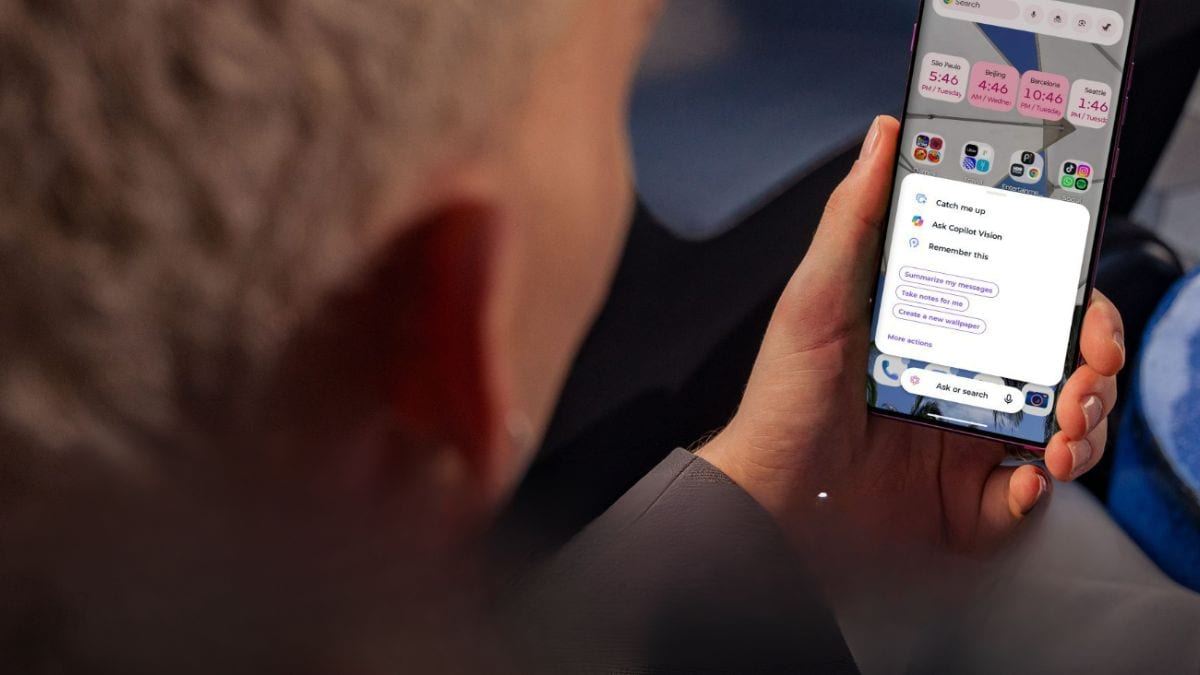ARTICLE AD BOX

Scammers use sophisticated trick called
WhatsApp Screen Mirroring Fraud
to steal money and personal information. This scam, which OneCard recently warned its customers about, is dangerous because it can give criminals direct access to your phone and all of your private data. Other than OneCard, all other public and private sector banks too have warned about this scam on numerous occasions.
How WhatsApp Screen Mirroring Scam Works
The fraud starts with a scammer pretending to be an employee from a trusted company, like a bank. They'll call you and claim there's a problem with your account, creating a sense of urgency.Gaining Your Trust: The fraudster convinces you to resolve the fake "problem" by sharing your phone's screen with them. They'll tell you that this is the only way to "fix" the issue.
Initiating the Theft: The scammer will then guide you through the process of turning on screen-sharing or remote access on your phone. To make it seem legitimate, they'll ask you to start a WhatsApp video call so they can see your screen "better."Stealing Your Information: Once you're on the video call and screen-sharing, they can see everything you do on your phone in real time. They might ask you to open your banking app to "verify" something. The moment you enter your password, PIN, or an OTP, they can see it and steal it.In some cases, fraudsters might also trick you into installing a malicious app that contains a keylogger. This is a type of software that records everything you type on your phone's keyboard, including passwords for your banking apps, social media, and more. Once they have this information, they can take over your accounts and drain your funds.
What Experts Say
Fortunately, most banking apps in India have adequate protection from these type of frauds. Tarun Wig, Co-Founder and CEO, Innefu Labs, told Economic Tmes, "Most of the top banking apps in India do have security features like secure screen overlays, screen capture lockdown and session timeout capabilities. But the efficacy of these protection measures can differ considerably between platforms.""While certain apps prevent screen sharing or screen recording directly, others might lack strong controls especially on rooted or compromised devices. Additionally, if customers inadvertently provide screen-sharing permissions, some third-party applications can bypass such security measures. It's an area where ongoing innovation and stronger app-level controls are necessary in order to remain ahead of changing fraud schemes."
How to protect yourself from WhatsApp screen sharing fraud
According to the advisory, here are some dos and don’ts that, if you follow them properly, can help you avoid falling victim to the WhatsApp
screen sharing fraud
:
Things that are Must Dos to Protect Yourself
* Verify the authenticity of callers claiming to be from banks or finance companies.* Enable screen-sharing only when absolutely necessary and do it only with trusted contacts.* If you use an Android phone, disable the ‘App installations from unknown sources’ setting.* Block suspicious numbers immediately and report them to cybercrime.gov.in or call 1930.
Things you should Never Do
* Avoid answering calls from unknown or suspicious numbers.* Never use financial apps (e.g. mobile banking, UPI apps, e-wallets) during screen-sharing. You can also call the cyber crime helpline at 1930 or go to https://cybercrime.gov.in/
How to protect yourself from social media and all other online frauds
* If any unknown person claims that your near or dear ones are in trouble, always confirm by calling them directly on landline or on a different number.* Delete data and restore factory settings on phone while selling or discarding the phone.* Never send private information like bank account details, PINs or passwords through WhatsApp.* Never accept files or begin downloads from messages sent to you by strangers or unknown numbers.* Never respond to suspicious messages that come from unknown numbers.* WhatsApp as a service will never contact you through a WhatsApp message. Never trust any message that claims to come from WhatsApp and demands some payment for the service.* Some scams say they can connect your PC with WhatsApp and send messages from a desktop. Do not believe these, as this is not possible.* Keep automatic downloads disabled, so that you can always keep a check on what is being downloaded.* Avoid using WhatsApp when you are connected to open Wi-Fi networks. These are hunting grounds for malware authors and data sniffers.



.png)
.png)
.png)
















 8 hours ago
4
8 hours ago
4









 English (US) ·
English (US) ·